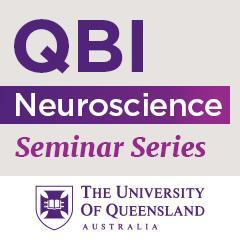Professor Rena Li and Professor Yong Shen, China : "Sex-specific targets to Alzheimer’s disease" and "Why is a single molecule, BACE1, involved with multiple types of brain disorders?”
Speakers:
12.00 - 12.30pm
Professor Rena Li
Beijing Institute of Brain Disorders, Capital Medical University, Beijing, China
Title: 'Sex-specific targets to Alzheimer’s disease'
Abstract: Reduction of sex hormone levels in menopausal women is associated with several major health risks, including an increased risk of Alzheimer’s disease (AD). Our previously published data showed that female AD patients express significantly less endogenous brain estrogen than age- and gender-matched normal controls. Depletion of endogenous estrogen causes an early onset of AD pathology and elevated beta-secretase (BACE1) enzymatic activity in a female transgenic animal model of AD. Inhibition of BACE1 is an attractive approach to prevent and delay AD progression. The interaction of estrogen and its receptors with specific DNA sequences, the so-called estrogen-responsive elements (EREs), constitutes a critical nuclear signaling pathway. We found an increase in BACE protein and activity levels in APP mice with a depletion of endogenous estrogen, suggesting a regulatory effect of estrogen on BACE in vivo. Two typical EREs and one half-site ERE have been identified in the BACE promoter. While no studies have been published on the effect of estrogen on BACE transcription activity yet, recent investigation showed that the half-site of the ERE or a typical ERE on promoter is responsible for transcriptional regulatory effects of estrogen on the somatostatin receptor and vascular endothelial growth factor. In this study, we investigated the estrogen effect on BACE1 promoter activity using the BACE promoter clones containing EREs. First, we investigated the effect of 17β-estradiol and genistein treatments on BACE1 promoter activity using a Luciferase reporter gene. Our data showed a significant downregulation of BACE1 promoter activity by 17β-estrodial and genistein treatments. We also used estrogen antagonists as well as gene knock down strategies to determine if the estrogen-induced downregulation of BACE1 promoter activity is estrogen receptor-dependent or independent. Furthermore, we mutated one or more of the half-size ERE(s) in the BACE1 promoter and found only specific EREs being responsible for the effects of estrogen on BACE1 transcriptional activity. Taken together, our results suggest that estrogen can downregulate BACE1 at the transcriptional level with a distinct ERE dependency.
12.30 - 1.00pm
Professor Yong Shen
Neurodegenerative Disorder Research Center, University of Science and Technology of China, Hefei, China
Title: 'Why is a single molecule, BACE1, involved with multiple types of brain disorders?'
Abstract: The protease β-site amyloid precursor protein (APP)-cleaving enzyme 1 (BACE1) is required for the production of the amyloid-β (Aβ) peptide, a molecule central to the pathogenesis of Alzheimer's disease (AD). Moreover, with advanced technologies, we and others have identified additional substrates for BACE1 and found that BACE1 acting on different substrates has distinct roles in different types of brain disorders. In my talk, I will discuss BACE1 functions in health and a range of brain disorders as well as possible mechanisms of how BACE1 assumes these functions.
About Neuroscience Seminars
Neuroscience seminars at the QBI play a major role in the advancement of neuroscience in the Asia-Pacific region. The primary goal of these seminars is to promote excellence in neuroscience through the exchange of ideas, establishing new collaborations and augmenting partnerships already in place.
Seminars in the QBI Auditorium on Level 7 are held on Wednesdays at 12-1pm, which are sometimes simulcast on Zoom (with approval from the speaker). We also occassionally hold seminars from international speakers via Zoom. The days and times of these seminars will vary depending on the time zone of the speaker. Please see each seminar listed below for details.



